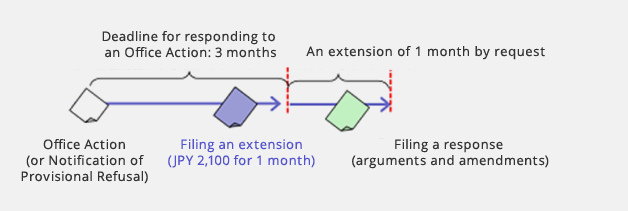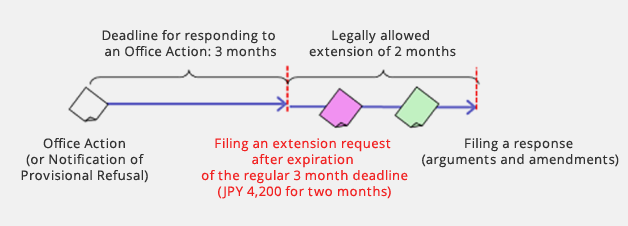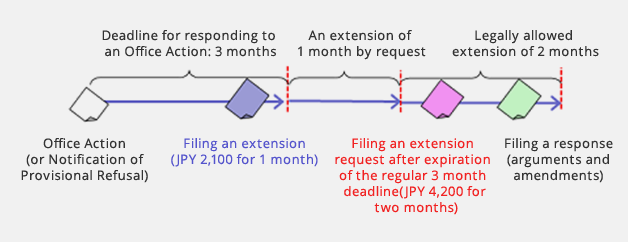About choosing the application route
There are two optional routes for foreign applications for trademarks: (1) File the application directly to the domestic patent office, and (2) as for a contracting country to the Protocol Relating to the Madrid Agreement (hereinafter referred to as the Madrid Protocol), file the international application for trademark registration through the domestic registration authority. In Europe, trademark rights may be obtained in all member countries (27 countries) by filing an application for trademark registration to OHIM (the Office for Harmonization in the Internal Market in the European Union). A brief explanation on application routes are as follows.
File the application directly to the domestic patent office
This is the most general method of application. The designated commodity under application shall be translated into the language of the country to which you are applying. In case of a character trademark, the trademark in the Japanese language may be registered directly. However, the Japanese language is only a pure symbol or sign in other countries, we therefore suggest you to translate the trademark into the language of the country to which you are applying before application. In particular, simple and easy local expressions are often used as a registered trademark in China (e.g., Starbucks is registered as “星巴克” and HSBC is registered as “汇丰银行” in China). Furthermore, an application might claim priority in accordance with the Paris Treaty within 6 months from the date of the Japanese trademark application.
The date of trademark application in a second country (foreign application) may be deemed as the date of the first application (the date of application to Japan), and the right of priority will be granted in the countries where the first-to-file principle is implemented.
- Examples for direct application fees
-
- About USD 1,200 per classification for Chinese trademark application
- About USD 1,300 per classification for Korean trademark application
File a response to the notice of refusal under the Madrid Protocol application system
In case of an application for Japanese trademark protection from any other country, the international trademark registration may be made in accordance with the Madrid Protocol. The member country is designated through the domestic patent office to perform the trademark registration uniformly. Upon application submitted by the domestic patent office to the international office, each designated country will begin the substantive examination.
Even when the trademark has been allowed in the international stage, the designated country still has the right to perform an independent examination and issue the reason for the refusal. Decide to accept or refuse the trademark under the registration application and will notify the applicant of such decision. The notice of refusal will be sent within 12 months or 18 months (for those member countries who are granted a period of 18 months) upon the date of international application.
The notice of provisional refusal means that the designated country has reasons to refuse the trademark registration application. Therefore, an argument or an amendment shall be submitted in order to eliminate such reasons.
Tsubame IP Law Firm can offer the service to respond to the notice of refusal issued by the Japan Patent Office under the Madrid Protocol, preparing an argument or amendment previous judgments, legal precedents and registration cases under the Japanese laws. The statement of opinions may be made in English and provided to the clients for review.
Example of fees
Period for response to the notice of provisional refusal
The period for response to the notice of provisional refusal is 3 months and may be extended for 3 months at most through the following procedures. Since April of 2016, an application for time extension may also be made after expiration of such 3 months for response to the provisional notice of refusal.
Example of fees
- ※ If you authorize our Firm to prepare the argument or the amendment, attorney fee for the first extension will be free of charge for you.
Filing an extension within the standard deadline of 3 months

Filing an extension after expiration of regular 3 month period for responding

- ※ Even if a response was not filed within the 3 month period, a request for extension can still be filed after its deadline.
Filing a second extension after expiration of responding time of total 4 months

- ※ Even if a response was not already submitted within the 4 month period, a request for extension may be filed after its deadline.
- ※ Extracted from the Japan Patent Office